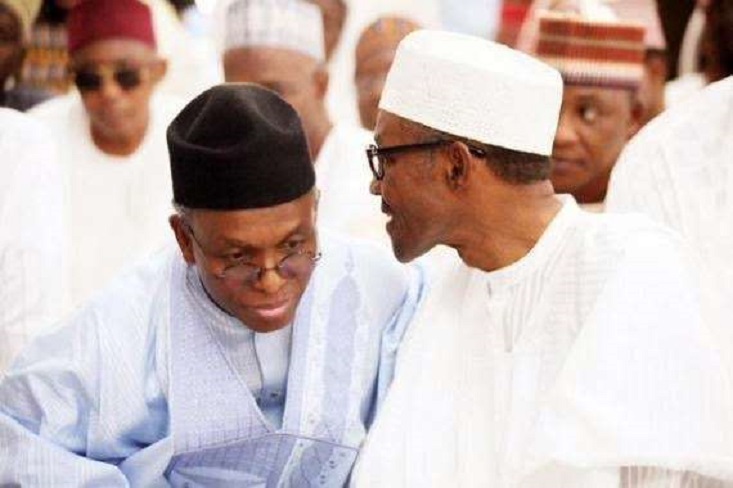You can pretty much tell the difference between successful nations and unsuccessful ones through the declared principles and or ideologies the leaders and political parties uphold or fail to uphold and total adherence to the rule of law which the leaders likewise uphold or fail to uphold. When the Monica Lewinsky scandal broke in the United States-much of the world watched in amazement as the then President Bill Clinton was hauled through various investigative panels and ended up almost being impeached because of a sexual affair with an intern that would be a non-issue in other climes. Unlike most parts of the world, the scathing scrutiny Bill Clinton faced was only possible because relevant institutions are independent of executive control and the rule of law applies equally to all American citizens irrespective of status, it is thus no accident that America is the success story it is.
A few months ago, the leader of the French National Front party, Marine Le Pen, expelled the founder and former leader of the party Jean Marie Le Pen for making anti-semitic comments against Jews. Ordinarily this would raise no eyebrows except that the expelled leader is not only the founder of the party but also the father of the party leader that expelled him. By any human standard, the decision to expel her father could not have been an easy one, but in a clime where principles count more than anything else, her father had to go to uphold the principles and ideals of the party. Any surprise then that France is a successful nation? Lastly, the infamous Halliburton scam would suffice to further buttress the fundamental difference between successful nations and unsuccessful ones. Most Nigerians would be familiar with the Halliburton scam in which mountains of bribe money was handed over by American officials seeking lucrative oil contracts to Nigerian officials including some ex-presidents.
When the scandal broke, the implicated American officials were promptly arrested by U.S. authorities, prosecuted and jailed in line with American laws that forbid giving bribe by American officials anywhere in the world. By contrast-the indicted Nigerian officials have remained free and subject to government protection owing to their status. Is it then any surprise that Nigeria is a failed state while the United States and other law respecting climes are prosperous? The lesson is simple; nations where the leaders are principled and where the rule of law is scrupulously applied prosper while nations where the leaders lack principles and the laws are selective fail. This perhaps is the reason we should be worried about Buhari’s demonstrated lack of principles and selective application of the rule of law as it concerns the ministerial list and the so called corruption war.
Chinua Achebe once declared “that one of the truest tests of integrity is its blunt refusal to be compromised.” The first mark of a principled leader would thus be the ability to keep his words and fulfil his promises no matter the pressure to do otherwise. In the course of the historic election, a notable commitment of Buhari and his campaign sloganeers was the promise to appoint a cabinet almost exclusively of technocrats who would be purpose driven to serve only in the interest of the common good. These technocrats were supposed to be Nigerians at home and from the Diaspora (expatriates) with unblemished records and proven competence. No doubt, the idea of appointing a purpose driven cabinet of technocrats caught the popular imagination and situated properly with the campaign slogan of change which even by a layman’s understanding was all about dumping the old order and ushering in a new way of doing things. The unusual delay in appointing the cabinet also naturally increased expectations as amongst many justifications advanced for the delay was the idea that Buhari was shopping for “saintly technocrats.” At best, the expectation was that the cabinet would be comprised of 80 percent technocrats and 20 percent politicians or at worst 60 percent technocrats and 40 percent politicians.
But after almost 5 months of waiting, the unveiling of the ministerial list shocked even the least hopeful. Buhari had abdicated his principles/promises and settled for a return to the status quo through a ministerial list packed exclusively with politicians most of whom have been in government in the last 16 years and some of whom have served in most of the previous failed governments in the last 4 decades. For whatever reasons, Buhari it seems-has opted for a “government of settlement” rather than a government of purpose driven technocrats. By doing this, he has proven to be a leader lacking in principles and incapable of keeping his promises.
Under his watch, the rule of law has also functioned in breach. While the individuals implicated in the Halliburton scam remain free, subject to the protection of government and while Chibuike Amaechi, the former governor of Rivers state remains untouchable in spite of a judicial indictment and an avalanche of petitions, the likes of Godswill Akpabio are being harassed by the EFCC on foot of a single petition. As the case studies amply indicated, nations where principles are scarce and where the law is selective are always failures. Buhari unfortunately is an embodiment of the traits that make nations fail. Except there is a bailout, Nigeria will predictably continue to fail.
–
Lawrence Chinedu Nwobu
Email:lawrencenwobu@gmail.com







